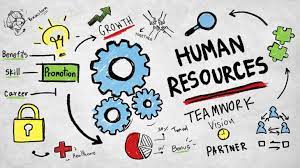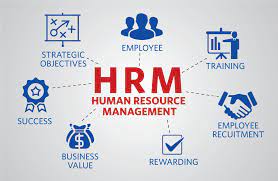Industrial/Organisational
(I/O) Psychologists have a wide range of skills, knowledge and abilities that
allow us to contribute effectively to improve organisational effectiveness and
the quality of work life.
- Enseignant: Amel MEHADJI

Observing, analyzing and interpreting human behavior in a professional environment is the domain of industrial organizational psychologists, commonly referred to as IO psychologists.
These professionals focus on individual and group performance, satisfaction, safety, health and well- being through a variety of quantitative and qualitative methods.
By studying workers attitudes and behaviors, IO psychologists are able to recommend or create improved hiring practices, training programs, feedback systems and management techniques to boost company performance. Their knowledge and skills are applicable to almost any organization, including corporations, factories, nonprofits, government agencies and the military.
On this page, we are going to take a more in-depth look at the typical day of an IO psychologist and what it takes to excel in the field.
- Enseignant: Amel MEHADJI

Industrial organizational psychology is the scientific study of human behavior in the workplace and applies psychological theories and principles to organizations and individuals in their workplace.
- Enseignant: Amel MEHADJI


A printed letter is usually reserved for important professional communications, such as recommendation letters, cover letters, resignation letters, business and legal correspondence, and company communications.
- A formal letter should include details about why you’re writing, an expression of your appreciation to the recipient for considering your request, and your contact information.
- Enseignant: Amel MEHADJI


A printed letter is usually reserved for important professional communications, such as recommendation letters, cover letters, resignation letters, business and legal correspondence, and company communications.
- A formal letter should include details about why you’re writing, an expression of your appreciation to the recipient for considering your request, and your contact information.
- Enseignant: Amel MEHADJI

- Gestionnaire: Amel MEHADJI


- Gestionnaire: Amel MEHADJI

Human resource management (HRM) is the practice of recruiting, hiring, deploying and managing an organization's employees. HRM is often referred to simply as human resources (HR). A company or organization's HR department is usually responsible for creating, putting into effect and overseeing policies governing workers and the relationship of the organization with its employees. The term human resources was first used in the early 1900s, and then more widely in the 1960s, to describe the people who work for the organization.
- Gestionnaire: Amel MEHADJI

When you hear the words ‘organisational psychology’ you may picture a psychiatrist stationed in the office staff lounge next to the coffee maker, or a psychologist who can help you rearrange your sock drawer. But organisational psychology is something different.
Sometimes called industrial-organisational psychology, business psychology, or simply ‘work psychology’ – organisational psychology is the scientific study and application of psychological principles to organisations and the workplace
- Gestionnaire: Amel MEHADJI
